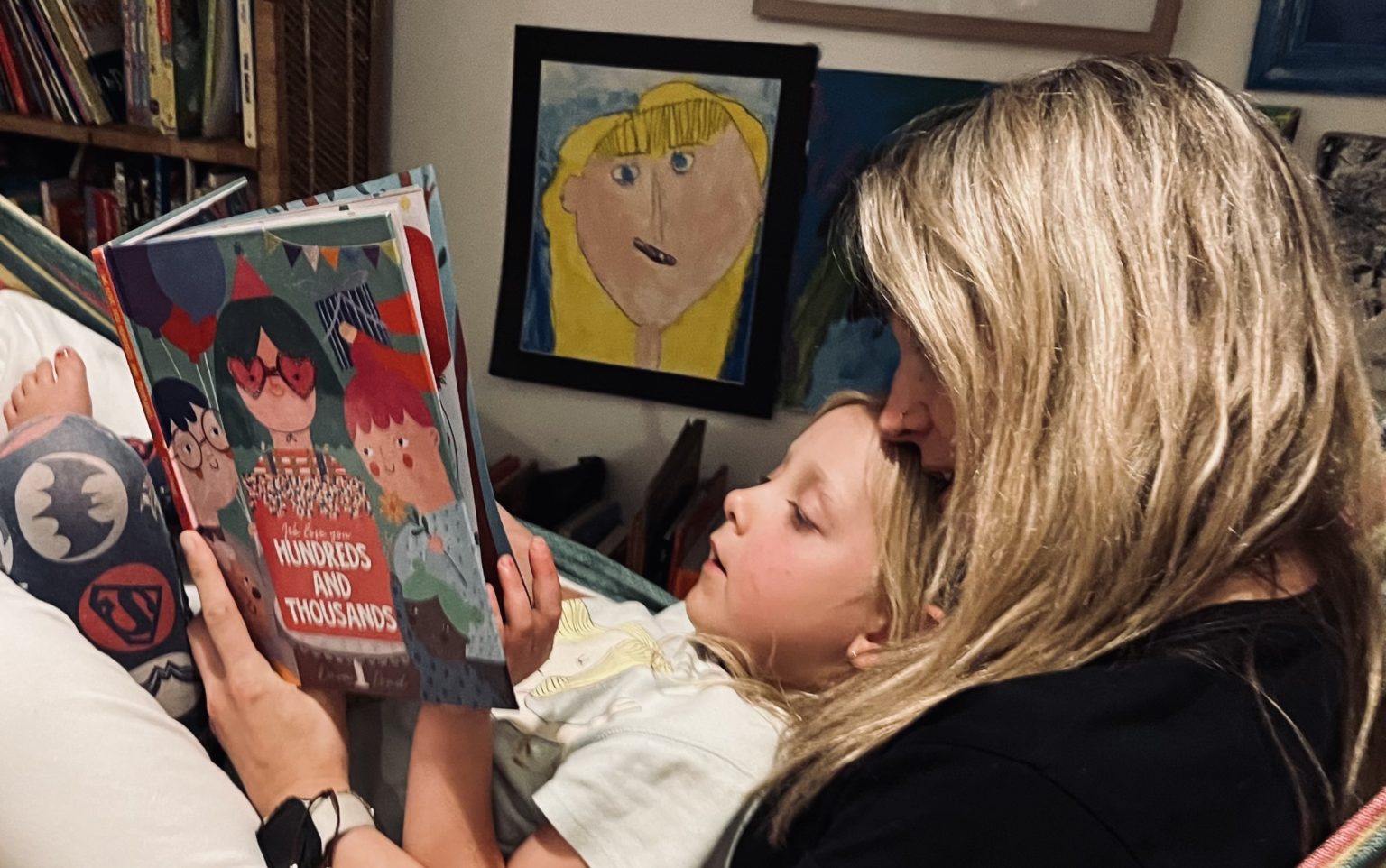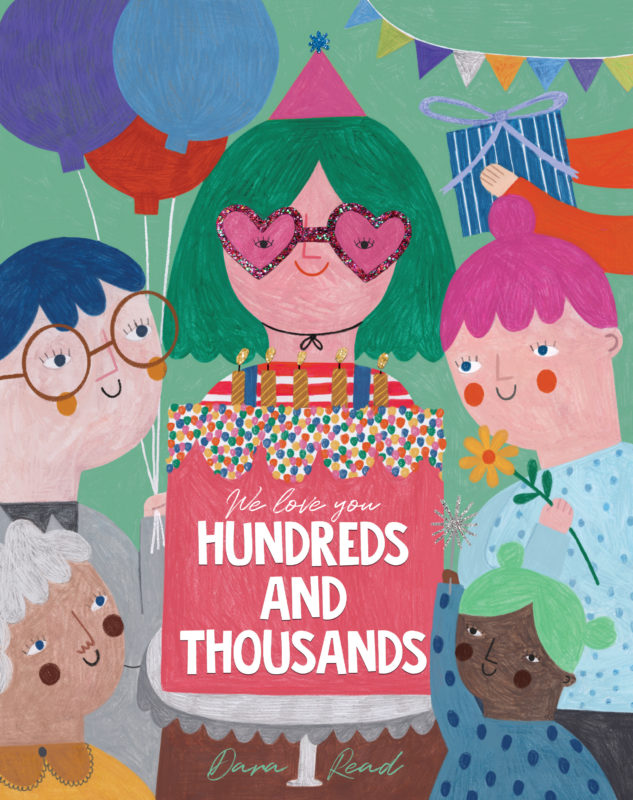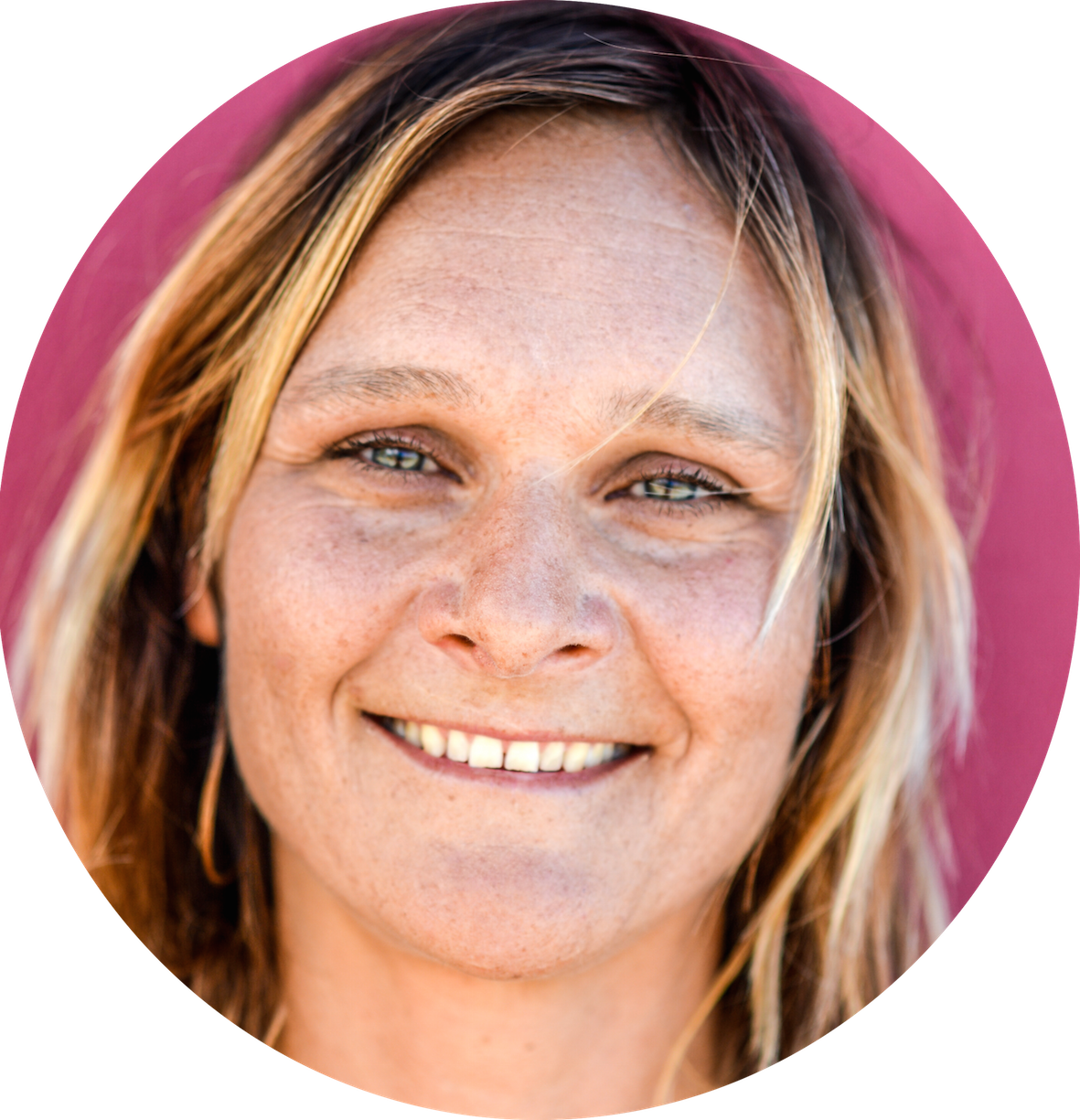Dara Read is adopted. She remembers well that there was no literature about her kind of family in her childhood. Now she is a mum herself and has written “We love you Hundreds and Thousands” and learned a lot while doing so.
By Ragna Swyter, Sydney
The girl with the green hair and the pink heart-shaped sunglasses is catching the eyes immediately. In her right hand she is holding a couple of colorful balloons, in front of her presented a massive birthday cake, sprinkled with Hundreds and Thousands, and topped with five golden candles. This is the cover of the funny but emotional children’s book “We love you Hundreds and Thousands” which is bursting with colors. The girl with the green hair is called Jasmine.
“I love birthday parties, especially my own!” is her first statement. In the following she is talking about them – one celebrated with a massive slip and slide in the garden, another time with a fire in the backyard and a sleepover. Each party is ending with the conclusion that Jasmine is different to her parents. But that is ok since they love her Hundreds and Thousands and that’s the only thing that matters. “Writing the book was like a healing process for me”, Dara Read mentions this casually but the sentence is lingering a long time.
There is the saying, the first book usually is autobiographical. A story about something the author went through. Dara Read makes no secrets about the fact she is adopted. “I had a fabulous childhood.” The now 42-year-old always knew she was adopted, although her parents didn’t speak much about it. “They wove it into my life.”
Tabooing is a problem
Today the author is considering this as a problem. She believes a sense of shame linked to adoption can be avoided by talking openly about it. “As a teenager, I was aware that I was different, and I didn’t really want to be.” For a long time, she did not talk about being adopted and only shared this later with her close school friend. “My story was met with love and curiosity”, she remembers today.
Dara Read was adopted in a in Australia called “closed adoption” when she was six weeks old. As a child it was not possible for her to have contact with her birth parents. At 18 she was legally allowed to access information about her birth mother. In her early 20s she met her birth parents the first-time face to face. Finally, she got answers and “it literally made me feel whole.” She not only realized similarities in the way she looked. Her birth father had a similar career path, and her birth mum was as creative as her.
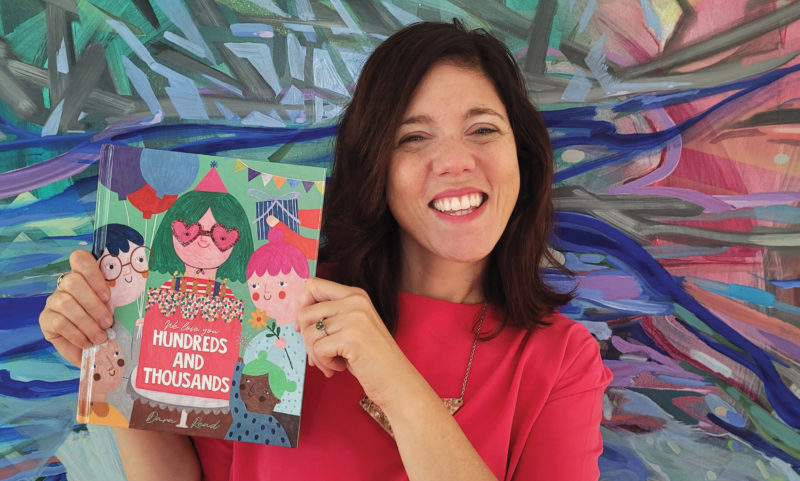
The Power of reading a book to someone
Books always have been important to Dara Read. Already in her year-six yearbook the then 12-year-old announced she was going to be growing veggies and become a writer. Yet she decided to study law. Today she is a social justice lawyer and has worked as a senior Ministerial advisor on adoption and out-of-home care. “Being pregnant with my now six-year-old son triggered a big transition in my life. Being adopted and becoming a mum myself brought up a lot of emotions that have been stored and which I had long ignored and never verbalized.”
The lawyer used the time of her maternal leave to wake up to her situation, to reflect it and to start writing the book. “Some of the happiest memories are being read to by my mum at night. Since having my own children, I realized how positive books are. I strongly believe in the power of what is happening in the relationship between a parent and a child when you read to them.” Still the author remembers well that none of her favorite childhood-heroes had been adopted. That did not exist in the world of her books.
Different ways of living are written about now
These days the book industry has emancipated. Much more often different ways of living are written about. Let it simply be a female main character. Or a different skin color. The American writer Vashti Harrison, who is black and whose book “Little leaders: Bold Women in Black History” portrays black women, states: “To be able to see yourself in someone else’s story can be life-changing.” Such stories show the children that they too can be the heroes, go on adventures and save the world. This kind of representation in books is an affirmation that they exist, “that their concerns are valid, and it’s okay to be yourself.”
“We love you Hundreds and Thousands” is supposed to give adopted kids the opportunity for identification. It took Read two years of writing, polishing, and getting the book edited. She went to workshops, did writing courses and worked within writing groups. And although there are now more books about adoption than it had been in the 80s, Dara Read had problems to find a publisher. “I pitched it to different publishers, and it got rejected again and again.” Official reason: too much of a niche.
After those two years she decided to self-publish it last year. The main challenge was to do this project in addition to being a fulltime mum when she started and then returning to her full-time job. Her hero Jasmine has some similarities with Read: “I also love glitter, I love parties and I love dancing.” She doesn’t have green hair, but she loves colorful clothes and has tousled reddish hair.
Kids and author: The power of books – Dara Read is reading her book to a group of children.
Adoptions in Australia with lowest number on record in 25 years
She does not know how many books she has sold already. And this is not how she is measuring her success. “All those messages and pictures I receive are of much more value to me.” This way she knows that her message has been heard. Which is that love makes a family and that there are families in all different forms and structures. “I have written that book to reach people who need it and not to make money.”
Her book was already bought in Australia, New Zealand, England and in the United States. On top of it, it’s available at some school libraries. A translation into German is under consideration. At the same time, less kids are being adopted in Australia. In the last 25 years the number declined by 63 percent. Last year there were only 264 children adopted. For comparison: In Germany 3843 children and teenager were adopted.
There are two essential reasons for that according to the Australian Institute for Health and Welfare: On the one hand the number of the intercountry adoption has decreased since the 1990s because of ethical concerns. On the other hand, less families are deciding to place a child into adoption. “There isn’t the stigma that used to exist around being a single mother in Australia”, so Renee Carter, chief executive of the Australian Organization “Adopt Change”.
In contrast the numbers of the “open adoption” are rising. Those are mainly children who for example can be in danger of being abused. Those kids are taken into the child protection program and come to foster families. Now roughly 46000 children live in foster care in Australia, 94 percent of those are in the child protection program.
Book can help understand adoption better
Lily lives in Dara Read’s neighborhood and is one of the first reader of the book. She is six years old and was adopted when she was three and a half years old, after she had been living with her family as a foster child for two years. She is aware of the fact she is adopted. The contact to her birth parents was never interrupted. Within the family they talk about adoption when Lily wants to. Her adoptive mother Liz Taylor loves “We love you Hundreds and Thousands”; Lily likes the hero Jasmine and the colorful pictures as much as the parties.
Most of all she loves the end of the book, when Jasmine is asking the reader to write the names of all the people who love her hundreds and thousands into a love heart. “It was beautiful to see how many names Lily instantly wrote into that heart. It is so important to me she knows that she is loved by so many people around her”, says Liz Taylor.
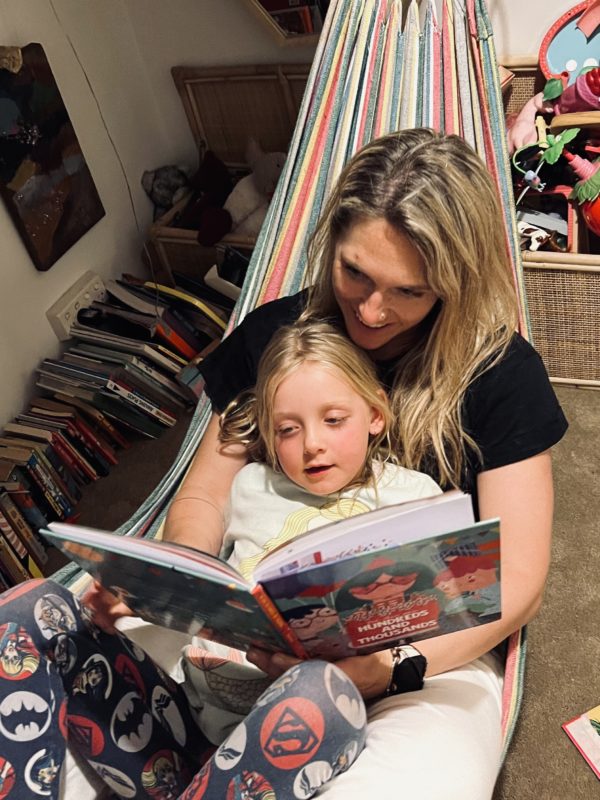
When reading the book, it is not that Lily constantly is drawing parallels to her situation, but her adoptive mother believes something of it will stay with her – “And for me as an adoptive parent to a daughter who is asking more and more questions about her story this lovely book couldn’t be more helpful.”
Liz Taylor thinks that even for a better understanding of adoption in Australia this book allows to improve the handling with adopted kids. In the end the book could help to understand the circumstances of those unique families much better. The book character Jasmine thinks it is funny that everybody is pointing out how much alike her and her adoptive parents are because: “I did not grow in mums’ tummy.”
All the time she must answer lots and lots of questions about that where in fact it was super simple. “My birth parents made me, and mum and dad grew me up.” And further: “My mum says to me: ‘You grew in my heart, not under it. This makes me feel super special.”
Hat dir unser Artikel gefallen?
Dann spendiere uns gerne einen (oder zwei) Kaffee… Danke!

